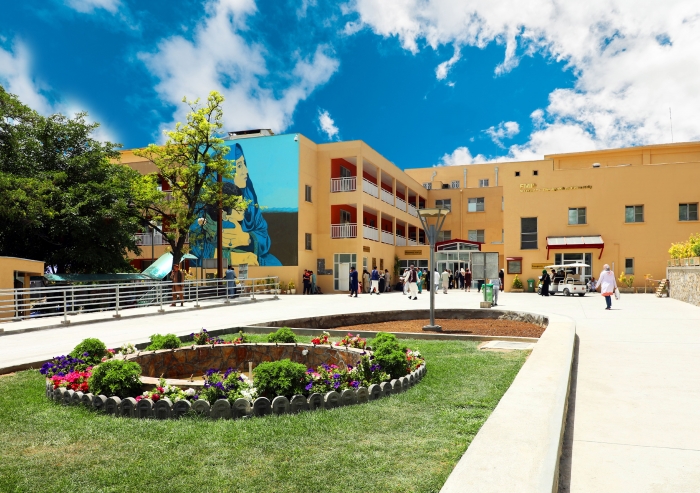In order to improve the accuracy and acceptance of Covid test results, the Aga Khan Medical Centre in Gilgit transitioned from molecular testing to RT-PCR testing. RT-PCR tests are widely recognized and they process more test samples simultaneously. In fact, for every GeneXpert machine that can process four test samples at a time, RT-PCR testing can process 96 test samples simultaneously.
This increased capacity at the centre, and coupled with wider acceptance, provided the impetus for AKHS’ Covid-19 response to set up its very own modern RT-PCR laboratory. This type of testing is not just limited to Covid-19 - it can include testing for HIV, Hepatitis C, and other viruses.
However, it was difficult for AKHS to identify a local subject matter expert who could help set up the testing lab. Having worked with highly skilled Time & Knowledge Nazrana (TKN) volunteers in the past, the agency requested Sehreen Ali to serve on a voluntary assignment.
Sehreen is based in Houston, Texas, and has a proven record of accomplishment in clinical diagnostic laboratories and specialises in Flow Cytometry. Before visiting Pakistan, she successfully set up a Flow Cytometry laboratory in Kenya and trained a team there. Sehreen is known to be a dedicated professional and an incredibly generous person.
“My personal goal is to empower myself and others, and share my knowledge with as many people as possible,” she says, commenting on her personal philosophy.
Sehreen’s trip to Gilgit-Baltistan was short and fruitful, but included some challenges.
Although the relevant equipment had been procured, it had to be set up. In addition to the laboratory staff at the medical centre, two staff from the City Hospital in Gilgit also provided their support. Sehreen and her team had to trouble-shoot a number of hardware issues before they were able to get the lab up and running. She trained the local team on RT-PCR testing and highlighted the measures required to ensure that test samples in the laboratory environment did not become a contamination risk.
At the end of Sehreen’s visit, a batch of samples were tested and the results sent to the National Institute of Health in Islamabad for cross-referencing.
“All in all it was a great experience and the staff were very helpful,” said Sehreen, who plans to return to Pakistan in a few months to check on the progress of the laboratory and advise on any additional measures for improvement.
Since the establishment of the Aga Khan Medical Centre in Gilgit, a number of specialties have been added, along with diagnostic and imaging services. For specialties that are not yet available in the region, teleconsultations with the Aga Khan University Hospital in Karachi are available, saving residents time and money that they previously spent travelling to larger cities to seek specialist care.
AKHS in Pakistan is also playing a key role in the government’s vaccination programme. To date, more than 42,000 people in Gilgit-Baltistan have received a first dose of a Covid-19 vaccine, and 40,000 people have received a second dose at an AKHS health facility.
The Aga Khan Health Service is immensely grateful to Sehreen for travelling to Pakistan for this assignment and for her exemplary contribution as a TKN volunteer.










